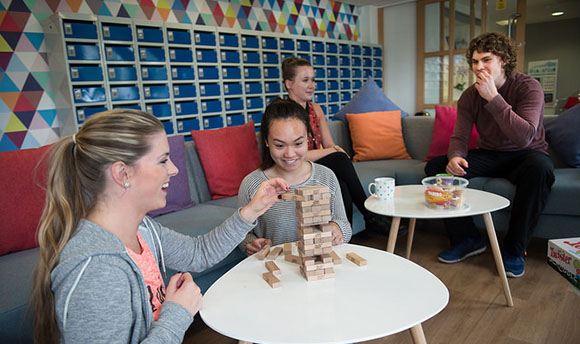By now, the outcome of the US election has lost its novelty and, you have probably begun to acknowledge the outcome at least as a fact of life (perhaps like athlete’s foot, or my attitude to the slow, inexorable retreat of my hair).
But something else will be happening too. Your recollection of what happened in the campaign will be changing, because your memory is not nearly as reliable as you think it is. You might think of your memory as an archive of all the things you’ve experienced. But it’s not like that, because of forgetting and reconstruction.
Forgetting happens all the time. Rapidly soon after an event, later more slowly. That may be no bad thing – would it really benefit you to recall all the items on the menu in the café where you had your lunch yesterday? By now, much of what you saw, heard, and thought during the campaign will have been forgotten.
Reconstruction is the process which fills in these gaps in our knowledge when we try to remember. Recall that big red Brexit bus that said that £350 million a week would go to the NHS? Well, actually it didn’t. It said “We send £350 million a week to the EU, let’s fund our NHS instead”. The bus itself never actually said that the £350m would go to the NHS. What you remember about the bus is quite likely to be incorrect. That incorrect memory could result from what you do remember (there was a bus, it mentioned the NHS, and vote leave politicians did talk about spending the £350m on the NHS – at least up until the morning after the referendum), and from your memory filling in the gaps in your recollection – after all, it is very plausible that the bus did say it. That would be a reconstructed memory. Perhaps you find it hard to agree given the politically loaded content? OK – let me ask you something less controversial: how many wheels did that bus have?
There’s a strong chance you’ll say ‘four’ because – let’s face it – you remember it was a bus, and buses have four wheels, right? No. That bus had six wheels. Unless you are a real bus aficionado, I’ll be willing to bet that you didn’t remember that, and your memory reconstructed it wrong.
Because the very act of summoning up a memory like this causes it to be reconstructed, that will in turn shape the way it is recalled another time, and then another, and so on until a ‘memory’ is an unholy mess of facts correctly recalled from an original event, and elements of various reconstructions that have happened across the intervening years.
Try and imagine your earliest memory. Now, try and think whether this is actually a real memory, or a memory that you know took place because someone told you about it , or something you saw in a photograph, or something that you imagined. It’s pretty hard, isn’t it?
This matters, because it means memory is very far from an impartial representation of true events. The way we reconstruct memories will be influenced by what we know about the world, a knowledge base that includes our deeply held political convictions. So, as we look back, what we remember will change. But it will change in line with our political baggage. If you think Trump is strong, and that America needs strong leadership, but are less keen on some of his more extreme proposals, then probably you’re going to remember his promises to ‘make America great again’, but you may start to forget his talk of building walls and of locking his opponent up (indeed, he seems like he might have forgotten some of this too). This forgetting may seem conveniently selective, but it is happening, unbidden and unseen, inside the workings of your memory. It’s quite like confirmation bias – an unseen, hidden process that is part of the way our information architecture works that silently shapes our persona.
Here’s another example. If you listen to UK media, you will hear commentators talk as if the Brexit result was a landslide, but it was just not that emphatic a decision – the majority for Brexit being around 2%. What I suspect is that people mentally aligned the scale of the impact of the decision with the size of the vote itself. The ensuing reassessment of their knowledge about the world may have then reached back to reshape memory. This isn’t necessarily dishonest, and it isn’t rewriting history – because memory is not a journal. It is, instead, a rebuilt web of ‘knowledge’ unreliably hung on unreliable hooks of recollection.
You probably shouldn’t trust your own memory uncritically.
Originally posted in the QMU Memory Research blog on November 30, 2016.







